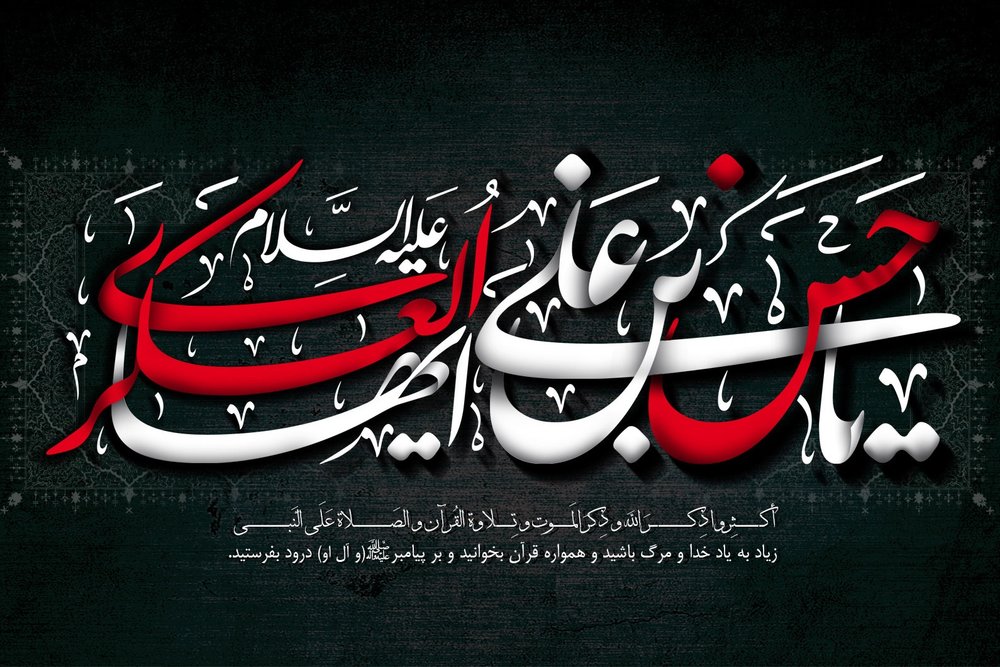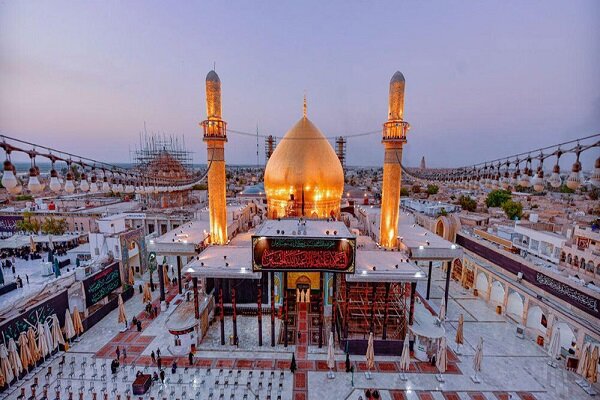Born in Madina, on the 8th day of the month of Rabi' Thani, in the year 232 A.H, Imam Hassan al-Askari (PBUH) was called 'al-Askari' in connection with the district of Askar in the city of Samarra' in which he and his father, Imam Ali un-Naqi al-Hadi (BPUH) were imprisoned by the Abbasid caliphs.
The major task of the Imam was to safeguard the Message of Islam, defend its originality, invite people towards it, and convey its principles and values.
During the reign of Imam al-Askari (PBUH), the school of Ahlul-Bayt (PBUH) was filled with knowledge, calling to Islam and defending it, and spreading its ideas, the chief element of this act was done through the academic way.

Indeed, the Holy Imam (PBUH) had students, companions, and narrators, some of whom had continued their task since the reign of his father and grandfather, while others joined in during the period of his divine leadership.
All the students and narrators had studied under the Holy Imam (PBUH) and quoted him in narrating Islamic sciences and culture.
Imam Hasan al-Askari (PBUH) lived during the times of the Abbasid caliphs, Mu'taz, Muhtadi, and Mu'tamid. The Holy Imam (PBUH) suffered more afflictions, confinement, terrorism, and pursuit by the three above-mentioned brutal and cruel caliphs and was, also, exposed to imprisonment at different times before them.
The last caliph, whom the Holy Imam (PBUH) lived with, Mu'tamid, was dissolute, disposed to entertainment and pleasures, singing, and committing the forbidden. All these caused people to hate him, and the Holy Imam (PBUH) suffered different kinds of troubles and torments at the hands of the caliph, Mu'tamid, who surrounded him with intensive security forces to keep an eye on him and pursued those who wanted to contact him.

The reason that caused the Abbasids to be more envious of the high position of the Holy Imam (PBUH), among the Ummah, was they were afraid of his son, the Awaited Imam Mahdi (PBUH). They knew that Imam would be the son of Imam Hasan al-Askari (PBUH) whom he referred to in one of his letters:
"They thought that they could kill me to cut off my offspring, but Allah denied their sayings and praise be to Allah."
The anger of the caliph, Mu'tamid, increased more when he saw that the whole Ummah glorified, and showed great respect and superiority to the Holy Imam (PBUH); and the Shias more than the Abbasids. On the other side, the caliph, Mu'tamid was greatly hated by the whole Ummah. Therefore, he decided to annihilate the Holy Imam (PBUH) and assassinate him.
Imam Abu Muhammad Hassan al-Askari (PBUH) was poisoned by the caliph, Mu'tamad, and, thus, suffered severely and was martyred on the 8th of the month of Rabi' Awwal in the year 260 (A.H.). At the time of his death, he was twenty-eight years old. He was buried in the house in which his father was buried in Samarra. He left behind his son - Living Holy Awaited Savior Imam Muhammad al-Mahdi (PBUH) the one who is awaited to bring about the heavenly rule of truth in the whole world.
Imam Hassan al-Askari (AS) was a gracious personality and an unmatched commentator of the Holy Quran. He was chief of religious scholars and an ideal of worshippers.
Imam al-Askari (AS), like his forefathers, practiced his cultural and scholarly role within the course of the school of Ahlul-Bait (AS) - which concentrated its activity on the Quran and prophetic traditions, safeguarding the originality of the message and discovering its contents.

Each year on this day, millions of Muslims, dressed in black, attend Husseiniyahs (an indoor place for observing religious ceremonies) and mosques in mass mourning processions and listen to elegies, with benefactors distributing charity foods.
In Iran, black-clad faithful gather in mosques to listen to eulogies delivered in honor of the revered figure. On this day, families and households prepare food, known as Nazri, for others as a way of almsgiving. The preparation and the partaking of this food are considered a privilege by believers.
MNA

























Your Comment